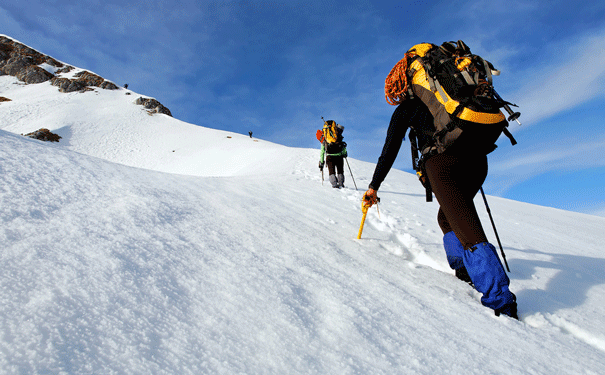
Altitude sickness is caused by a lack of oxygen molecules in the air, due to lower air pressure at high altitudes. Image: Shutterstock
The over-the-counter solution that might help put an end to altitude sickness.
Altitude sickness affects more than 25 per cent of Australians who ascend to high altitudes of more than 2500 meters. Grant Lipman, a clinical assistant professor at the Stanford University School of Medicine, describes it as “a really nasty hangover”. Symptoms can include headache, fatigue, dizziness, nausea, poor appetite and vomiting.
Altitude sickness is caused by a lack of oxygen molecules in the air, due to lower air pressure at high altitudes. Your body tries to adjust by making more red blood cells to carry the oxygen around; however, this process may take days, and in the mean time you may become ill. If altitude sickness goes untreated, it may lead to high-altitude cerebral edema — an often-fatal swelling of the brain.
Ibuprofen, an anti-inflammatory drug, often used as a painkiller, considerably reduces the significance of altitude sickness. Researchers from Stanford University conducted an experiment on 58 men and 26 women who travelled to an area of the White Mountains northeast of Bishop, California, in the US. The participants spent the night at 1,200 meters, and were given a dose of ibuprofen or a placebo at 8 am before heading up the mountain. They were given a second dose at 3,550 meters at 2 pm and a third dose at 8 pm when they were at 3,830 meters.
Ibuprofen reduced the incidence by 26 per cent — 69 per cent of the placebo group had severe symptoms. Although other medications such as acetazolamide and dexamethasone are available for altitude sickness they have adverse side effects.
“The safety profile of ibuprofen makes it more attractive then dexamethasone, which has been associated with hyperglycemia, adrenal suppression, delirium, depression, insomnia and mania,” Lipman said. “Acetazolamide’s adverse effects of nausea, dizziness and fatigue are usually well-tolerated but can be as debilitating as acute mountain sickness.”
The findings could prove especially useful for recreationists who have weeklong vacations planned at high altitudes. “You don’t want to feel horrible for 15 to 20 per cent of your vacation,” Lipman said. “Ibuprofen could be a way to prevent altitude sickness in a significant number of the tens of millions of people who travel to high altitudes each year.”
Source: Eureka Alert






